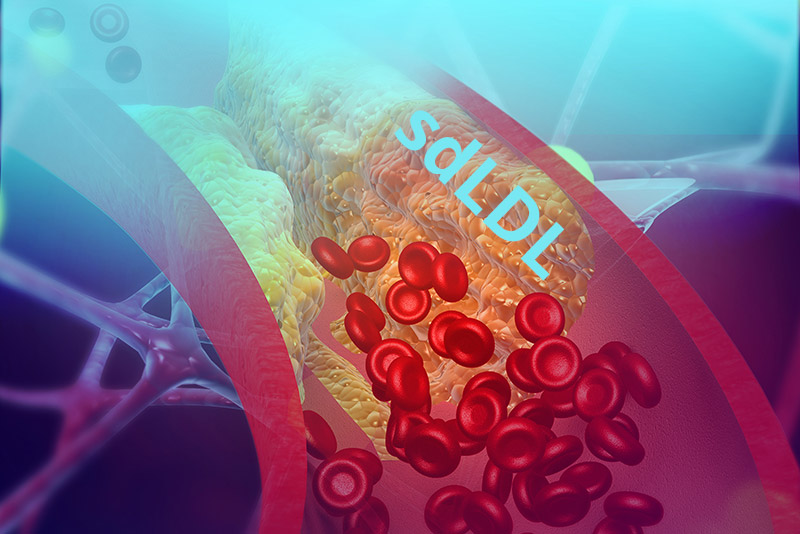- Home
- About Us
- Advanced Testing
- Nutrition & Self-Care
- Further Learning
- New Member Info
- Contact
sdLDL is a type of LDL cholesterol – they are smaller denser particles so they are more atherogenic. These smaller particles can penetrate the endothelial wall more easily, so they are more susceptible to oxidation in the intima of the artery. Oxidized particles contribute to the formation of foam cells, which over time develop into arterial plaque.
Elevated levels of sdLDL confer a 3-fold increased risk of coronary artery disease (a level of cardiovascular risk similar to that of cigarette smoking), and this risk is independent of LDL cholesterol! 1 In addition, sdLDL is linked to insulin resistance and metabolic syndrome – patients with elevated levels are twice as likely to develop diabetes.

LDL size has shown to be a strong predictor of progression of plaque growth (as measured by IMT). It also been linked with stent restenosis and with new lesion formation in coronary artery bypass graft (CABG) patients. 2
The MESA & ARIC trials showed sdLDL to be a better predictor of cardiovascular (CV) risk than LDL-C, even in patients with low cholesterol (LDL-C < 100mg/dL). 1 Similarly, the JUPITER trial linked sdLDL to CV deaths . . . even in patients with very low LDL-C.
Take home message: Small LDL is linked to increased risk of metabolic syndrome and diabetes, the progression of coronary artery disease, and an overall higher risk of a cardiovascular events.
The best treatment is the least expensive – diet, exercise, weight loss
A diet low in sugars and carbohydrates will improve sdLDL.
Endurance exercise can improve sdLDL
Loss of body fat improves sdLDL
Fish oil (omega 3) and fibrates can improve sdLDL (particularly if triglycerides are elevated)
Nicotinic acid can improve sdLDL
Statins can lower both small and large LDL
Thyroid replacement can improve sdLDL in the hypothyroid patient
Do something today for a better tomorrow!
Make an appointment now for advanced testing. We are here to help.